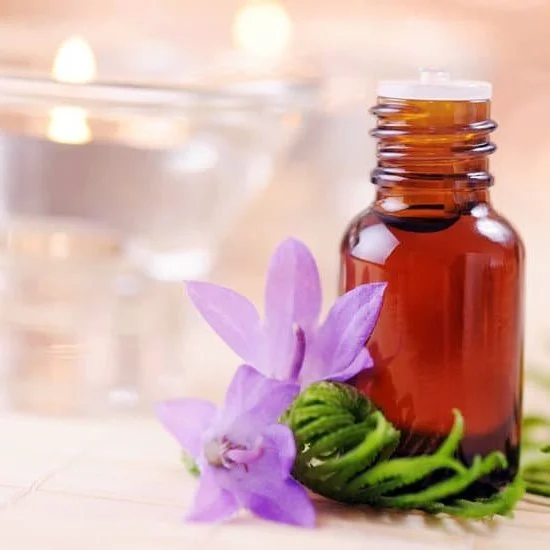Aromatherapy has gained significant popularity in recent years for its therapeutic effects and natural healing properties. At the heart of this practice are essential oils, which are extracted from various parts of plants and used to promote physical and emotional well-being. In this article, we will delve into the world of aromatherapy and explore the best essential oils for this purpose.
Aromatherapy is an alternative medicine practice that uses the aromatic compounds of plants, including their essential oils, to enhance physical and psychological well-being. When these essential oils are inhaled or applied topically, they interact with the body’s limbic system, which controls emotions and memories. This interaction can elicit a range of responses, from relaxation and stress reduction to improved mental clarity and enhanced immune function.
Choosing the right essential oils for aromatherapy depends on several factors, such as desired effects, personal preferences, and individual health conditions. Different essential oils have different properties and benefits. For example, lavender essential oil is known for its calming effect on the mind and body, making it an excellent choice for reducing stress and promoting restful sleep. Eucalyptus essential oil is renowned for enhancing respiratory health, while peppermint oil can boost energy levels and aid digestion.
As we explore the best essential oils for aromatherapy in this article, you will discover their unique benefits for various aspects of health and well-being. From lavender as a stress buster to eucalyptus as a respiratory health enhancer, these powerful plant-based extracts offer a natural solution to improve your overall quality of life. So take a deep breath and embark on this journey into the world of aromatherapy with us.
Understanding the Basics of Aromatherapy
What is Aromatherapy?
Aromatherapy is a holistic healing practice that uses the natural aromas and therapeutic properties of essential oils to promote physical, mental, and emotional well-being. It involves inhaling or applying essential oils topically to stimulate certain responses in the body and mind. The sense of smell plays a crucial role in this therapy as the aroma of the essential oils interacts with the brain’s limbic system, which is responsible for emotions, memories, and behavior.
How Does Aromatherapy Work?
The molecules in essential oils are volatile and easily evaporate into the air. When these aromatic molecules are inhaled, they travel through the nasal passages and stimulate the olfactory receptors. These receptors send signals to the brain, triggering various physiological responses.
Additionally, when applied topically, essential oils can be absorbed through the skin and enter the bloodstream. From there, they can affect different body systems and organs. The chemical constituents of each oil determine its specific effects on the body.
The Benefits of Aromatherapy
Aromatherapy offers a wide range of benefits for both physical and emotional well-being. Some common benefits include:
- Stress reduction: Many essential oils have calming properties that help reduce stress levels and promote relaxation.
- Improved sleep quality: Certain essential oils such as lavender have sedative effects that can aid in falling asleep faster and enjoying a more restful night’s sleep.
- Respiratory health enhancement: Essential oils like eucalyptus are known for their decongestant properties, helping to ease respiratory issues such as congestion or coughs.
- Enhanced mood: Citrus essential oils such as lemon are uplifting and can boost mood while reducing feelings of anxiety or depression.
- Skin health improvement: Tea tree oil has antimicrobial properties that make it effective against acne-causing bacteria and can be used to treat various skin conditions.
- Mental alertness and focus: Rosemary essential oil has stimulating properties that enhance cognitive function, memory, and concentration.
By understanding the basics of aromatherapy and its benefits, individuals can harness the healing power of essential oils to improve their overall well-being. However, it is crucial to choose the right essential oils for specific needs and to consider any contraindications or precautions.
Choosing the Right Essential Oils
When it comes to aromatherapy, choosing the right essential oils is crucial to maximize the therapeutic benefits. With so many options available, it can be overwhelming to decide which oils are best suited for your needs. However, by considering a few key factors, you can ensure that you select the most effective essential oils for your aromatherapy practice.
One important factor to consider when choosing essential oils is the desired effect or benefit you are seeking. Different essential oils have unique properties that can address various physical and emotional concerns. For example, if you are looking to reduce stress and promote relaxation, lavender essential oil is an excellent choice. On the other hand, if you need relief from respiratory issues such as congestion and coughing, eucalyptus essential oil would be more appropriate.
Another factor to consider is personal preference. Aromatherapy works best when you enjoy the scent of the essential oil you are using. Choosing an oil with a fragrance that appeals to you will enhance your overall experience and increase its effectiveness. Additionally, consider any sensitivities or allergies you may have when selecting essential oils. Some oils may cause skin irritation or trigger allergic reactions in certain individuals.
| Essential Oil | Benefits |
|---|---|
| Lavender | Stress reduction, sleep aid |
| Eucalyptus | Respiratory health enhancement |
| Peppermint | Natural energy booster, digestive aid |
| Lemon | Mood uplifting, immune system boosting |
| Tea Tree | Antimicrobial, skin health improvement |
It is important to note that essential oils are highly concentrated substances and should be used with caution. Always dilute essential oils appropriately before applying them to the skin or using them in a diffuser. Additionally, consider consulting with a qualified aromatherapist or healthcare professional to ensure the safe and proper use of essential oils for your specific needs.
By taking into account factors such as desired effects, personal preference, and any sensitivities or allergies, you can confidently choose the right essential oils for your aromatherapy practice. Whether you are seeking stress relief, respiratory support, energy boost, mood uplifting, or other therapeutic benefits, there is an essential oil that can cater to your unique needs.
Lavender Essential Oil
Lavender essential oil is one of the most popular and versatile essential oils used in aromatherapy. Known for its calming and relaxing properties, lavender can be a powerful tool for stress relief and promoting better sleep.
One of the main benefits of lavender essential oil is its ability to reduce stress and anxiety. Research has shown that the scent of lavender can lower heart rate and blood pressure, making it an effective natural remedy for those dealing with stress or anxiety disorders. Inhaling lavender oil can also help improve mood and promote feelings of calmness and relaxation.
In addition to its stress-relieving properties, lavender essential oil is also well-known for its sleep-inducing effects. Many people struggle with insomnia or have difficulty falling asleep, but using lavender oil as part of a nighttime routine can help improve sleep quality. Studies have found that inhaling lavender before bed can increase deep sleep, reduce restlessness, and result in overall improved sleep patterns.
When choosing a lavender essential oil for aromatherapy purposes, it is important to consider factors such as purity and source. Look for oils that are 100% pure and therapeutic grade, as these will provide the highest quality aroma and therapeutic benefits.
| Benefit | Data |
|---|---|
| Stress Relief | Inhaling lavender oil can lower heart rate and blood pressure. |
| Sleep Improvement | Lavender oil increases deep sleep and reduces restlessness. |
Eucalyptus Essential Oil
Eucalyptus essential oil, derived from the leaves of the eucalyptus tree, is well-known for its prominent role in enhancing respiratory health. This powerful and versatile oil possesses several therapeutic properties that make it an excellent addition to any aromatherapy routine.
One of the key benefits of eucalyptus essential oil is its ability to relieve congestion and promote clear breathing. The oil contains a compound called cineole, also known as eucalyptol, which has been found to have expectorant and decongestant properties. Inhaling the aroma of eucalyptus oil can help open up the airways, reduce inflammation in the respiratory tract, and facilitate easier breathing.
In addition to its respiratory benefits, eucalyptus essential oil also exhibits antibacterial and antiviral properties. It can help protect against common respiratory infections such as colds and flu by killing or inhibiting the growth of harmful bacteria and viruses. This makes it an excellent choice for diffusing during cold and flu season or when dealing with respiratory issues.
| Therapeutic Properties | Prominent Benefits |
|---|---|
| Expectorant | Relieves congestion and promotes clear breathing |
| Antibacterial & Antiviral | Helps protect against respiratory infections |
| Anti-inflammatory | Reduces inflammation in the respiratory tract |
To experience the benefits of eucalyptus essential oil for respiratory health, there are several ways you can use it. One popular method is inhalation: add a few drops of eucalyptus oil to a bowl of hot water, cover your head with a towel, and inhale the steam for about 10 minutes. You can also use eucalyptus oil in a diffuser or apply it topically by diluting it with a carrier oil and massaging it onto the chest and throat area.
Peppermint Essential Oil
Peppermint essential oil is one of the most popular and versatile essential oils used in aromatherapy. Its invigorating scent and numerous therapeutic properties make it a favorite among many individuals seeking a natural energy boost and relief from digestive issues.
- A natural energy booster: Peppermint essential oil has a refreshing, minty aroma that stimulates the mind and increases mental alertness. When diffused or inhaled directly, the oil can help to improve concentration, enhance focus, and combat fatigue. It is an excellent choice for those who need a pick-me-up during long workdays or when feeling sluggish.
- Relief from digestive issues: Peppermint essential oil has long been admired for its ability to ease digestive discomfort. It has carminative properties, which means it can help relieve gas, bloating, indigestion, and nausea. When applied topically in diluted form to the abdomen, peppermint oil can provide soothing relief for stomachaches or cramps.
Here are some ways you can incorporate peppermint essential oil into your aromatherapy routine:
- Diffusion: Add a few drops of peppermint essential oil to your diffuser along with other complimentary oils like lemon or lavender for an energizing blend.
- Inhalation: Inhale directly from the bottle or add a drop or two onto a tissue or handkerchief to breathe in throughout the day.
- Topical application: Mix a few drops of peppermint oil with a carrier oil like coconut or jojoba oil and apply it to the abdomen for digestive relief, or rub it onto temples and wrists for an energy boost.
As with all essential oils, it is important to use caution and dilute peppermint oil properly before applying it topically as it is highly concentrated. Pregnant women, children, and individuals with certain medical conditions should consult with a healthcare professional before using peppermint essential oil.
Lemon Essential Oil
Lemon essential oil is widely known for its fresh, citrusy scent and numerous health benefits. It is derived from the peel of lemons through a process known as cold-pressing, which helps retain the oil’s natural properties. In aromatherapy, lemon essential oil is highly regarded for its mood-uplifting and immune-boosting properties.
Refreshing Mood Uplifter
Lemon essential oil has been used for centuries to help improve mood and promote feelings of happiness and positivity. The vibrant and energizing scent of lemon can help uplift your spirits and relieve symptoms of stress, anxiety, and depression. Inhaling the aroma of lemon essential oil can create a sense of freshness and rejuvenation, making it an excellent choice for those looking to enhance their overall well-being.
Additionally, Lemon essential oil has been found to have mood-regulating effects due to its ability to increase levels of neurotransmitters like serotonin in the brain. These neurotransmitters are responsible for regulating mood, sleep, appetite, and many other bodily functions. By promoting the production of serotonin, lemon essential oil can help reduce symptoms of depression and anxiety.
Immune System Booster
Lemon essential oil is also known for its immune-boosting properties. It contains powerful antioxidants that help fight off free radicals in the body. Free radicals are unstable molecules that can damage cells and contribute to various diseases and conditions. By neutralizing these harmful molecules, lemon essential oil can support a healthy immune system.
Furthermore, lemon essential oil has antiviral and antibacterial properties that make it effective in combating common infections like colds and flu. Its high content of limonene, a phytochemical found in citrus fruits, has been shown to have antimicrobial effects against a wide range of bacteria strains.
Tea Tree Essential Oil
Tea tree essential oil, also known as melaleuca oil, is derived from the leaves of the tea tree plant (Melaleuca alternifolia) native to Australia. It has gained popularity in recent years for its impressive antimicrobial properties and numerous benefits for skin health. In this section, we will explore how tea tree essential oil can effectively combat various skin concerns and promote overall skin wellness.
Antimicrobial Properties
One of the most significant attributes of tea tree essential oil is its antimicrobial activity. It contains a compound called terpinen-4-ol, which is responsible for its potent antimicrobial effects. Research has shown that tea tree oil can be effective against a wide range of microorganisms, including bacteria, viruses, and fungi. This makes it an excellent natural remedy for common skin issues such as acne, fungal infections (such as athlete’s foot or nail fungus), and even cold sores.
Acne Treatment
Due to its antibacterial properties, tea tree essential oil can be particularly beneficial for those struggling with acne-prone skin. It helps to kill bacteria that contribute to acne development and reduces inflammation associated with breakouts.
To use tea tree oil for acne treatment, dilute a few drops in a carrier oil (such as coconut or jojoba oil) and apply it directly to affected areas using a cotton swab or pad. It’s important to note that undiluted tea tree oil may cause skin irritation in some individuals.
Skin Soothing and Healing Properties
Tea tree essential oil also possesses anti-inflammatory properties that can help soothe irritated or inflamed skin. It aids in relieving itchiness, redness, and swelling associated with conditions like eczema or psoriasis. Additionally, its mild analgesic properties can provide temporary relief from minor cuts, scrapes, and insect bites. To utilize its skin healing benefits, mix a few drops of tea tree oil with a carrier oil and gently massage it onto the affected area.
Chamomile Essential Oil
Chamomile essential oil is known for its calming properties and is often used as a natural remedy for anxiety and stress relief. It has been used for centuries in traditional medicine to soothe nerves and promote relaxation. The oil is derived from the flowers of the chamomile plant and has a sweet, floral scent.
One of the main benefits of chamomile essential oil is its ability to reduce anxiety and promote relaxation. Research has shown that inhaling the aroma of chamomile can help alleviate feelings of stress and anxiety, making it an excellent choice for aromatherapy. In addition to its calming effects on the mind, chamomile essential oil also has muscle-relaxing properties. It can be used topically to relieve muscle tension and soreness, making it an ideal option for massage or bath oils.
Chamomile essential oil can also be used as a natural sleep aid. Its calming properties can help induce a sense of tranquility and promote better sleep quality. Adding a few drops of chamomile oil to your diffuser or pillow spray can create a soothing atmosphere that promotes relaxation and restful sleep.
Rosemary Essential Oil
Rosemary essential oil is a popular choice in aromatherapy due to its numerous benefits for both the mind and body.
Cognitive Enhancer
One of the key benefits of rosemary essential oil is its ability to enhance cognitive function. The aroma of rosemary has been found to stimulate mental clarity, improve concentration, and boost memory. In fact, research has shown that the scent of rosemary can enhance cognitive performance and increase alertness. This makes rosemary essential oil a great option for students, professionals, or anyone looking to improve their focus and mental performance.
Scalp Nourisher
In addition to its cognitive-enhancing properties, rosemary essential oil is also known for its nourishing effects on the scalp and hair. It has been used for centuries as a natural remedy for promoting hair growth and maintaining a healthy scalp. Rosemary essential oil stimulates blood circulation in the scalp, which helps deliver more nutrients to the hair follicles and encourages hair growth. It also has antimicrobial properties that can help fight dandruff and other scalp conditions.
How to Use Rosemary Essential Oil
There are several ways you can incorporate rosemary essential oil into your aromatherapy routine:
- Diffusion: Add a few drops of rosemary essential oil to a diffuser or nebulizer with water and let it fill the room with its invigorating aroma.
- Topical Application: Dilute rosemary essential oil with a carrier oil such as coconut or jojoba oil before applying it directly to the skin or scalp.
- Massage: Mix a few drops of rosemary essential oil with a carrier oil and use it during a relaxing massage session to stimulate both the mind and scalp.
It’s important to note that some individuals may have an allergic reaction or sensitivity to certain essential oils, including rosemary. Therefore, it’s advisable to do a patch test before using rosemary essential oil topically and consult with a healthcare professional if you have any concerns or medical conditions.
Conclusion
In conclusion, essential oils offer a wide range of benefits for aromatherapy that can enhance overall well-being and promote healing. By understanding the basics of aromatherapy and considering various factors when choosing the right essential oils, individuals can find the perfect oils to suit their needs. Lavender essential oil is a powerful stress buster and sleep aid, while eucalyptus essential oil supports respiratory health.
Peppermint essential oil offers natural energy boosting properties and aids digestion, while lemon essential oil uplifts moods and boosts the immune system. Tea tree essential oil is a potent antimicrobial agent for skin health, chamomile essential oil soothes anxiety and relieves muscle tension, and rosemary essential oil enhances cognitive function and nourishes the scalp.
By harnessing the healing power of these essential oils, individuals can create their own personalized aromatherapy treatments to address specific concerns or simply indulge in self-care rituals. Whether it’s using lavender oil in a diffuser before bedtime to calm the mind or adding a few drops of eucalyptus oil to a steam inhalation for respiratory support, integrating these oils into daily routines can have profound effects on overall health.
It’s important to note that while essential oils offer numerous benefits, they should be used with caution. It’s advisable to conduct patch tests before applying them topically and dilute them properly as per recommended guidelines. Furthermore, it’s always recommended to consult with a qualified practitioner or aromatherapist before incorporating any new oils into your routine.
Frequently Asked Questions
What are the 10 best essential oils to try for aromatherapy?
The selection of the best essential oils for aromatherapy can vary depending on personal preferences and desired effects.
However, some popular options include lavender, known for its calming and relaxing properties; peppermint, which can provide a refreshing and invigorating sensation; eucalyptus, often used for respiratory support; tea tree oil, renowned for its antiseptic properties; lemon oil, with its uplifting and purifying scent; chamomile, loved for its soothing and anxiety-reducing effects; rosemary, commonly used to enhance mental clarity and focus; bergamot, prized for its mood-lifting and stress-relieving qualities; ylang-ylang oil, known to promote relaxation and balance emotions; and frankincense, highly regarded for promoting a sense of peace and tranquility.
What essential oils are safe for aromatherapy?
Safety is crucial when using essential oils for aromatherapy. While many essential oils are generally considered safe when properly diluted and used as directed, there are a few that may be more likely to cause adverse reactions or sensitivities in some individuals.
It is important to conduct research or consult with a professional before using any essential oil. Some commonly safe options include lavender oil as it is gentle and versatile, chamomile oil known for its soothing qualities, bergamot oil with its mild nature but potential photosensitivity concerns in high concentrations or prolonged exposure to sunlight, lemon oil which is generally well-tolerated but should be diluted to prevent skin irritation when applied topically.
What are the top 3 essential oils?
Selecting the top three essential oils largely depends on individual needs or preferences. Lavender oil is often considered one of the most versatile due to its wide range of benefits such as promoting relaxation, improving sleep quality, reducing stress and anxiety levels. Peppermint oil is renowned for stimulating the senses while providing a cooling effect that can ease headaches or relieve muscular discomforts.
Its invigorating aroma can help enhance focus and concentration. Lastly, tea tree oil is highly prized for its potent antimicrobial and antiseptic properties, often used to support a healthy immune system and combat skin issues such as acne or fungal infections. Tea tree oil can be a powerful addition to personal care routines when used properly.

Are you looking for a natural way to improve your health and wellbeing?
If so, aromatherapy may be the answer for you.





